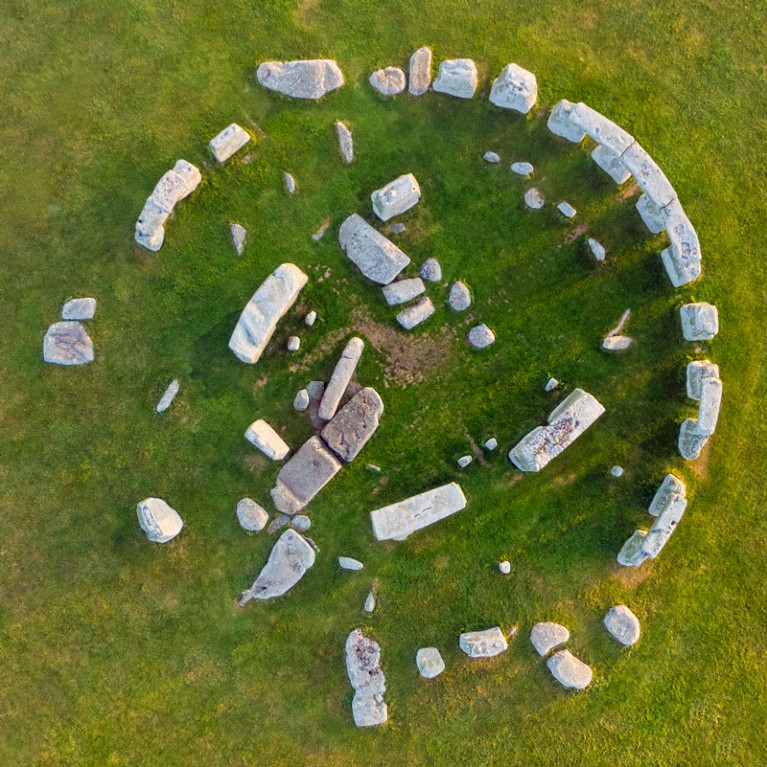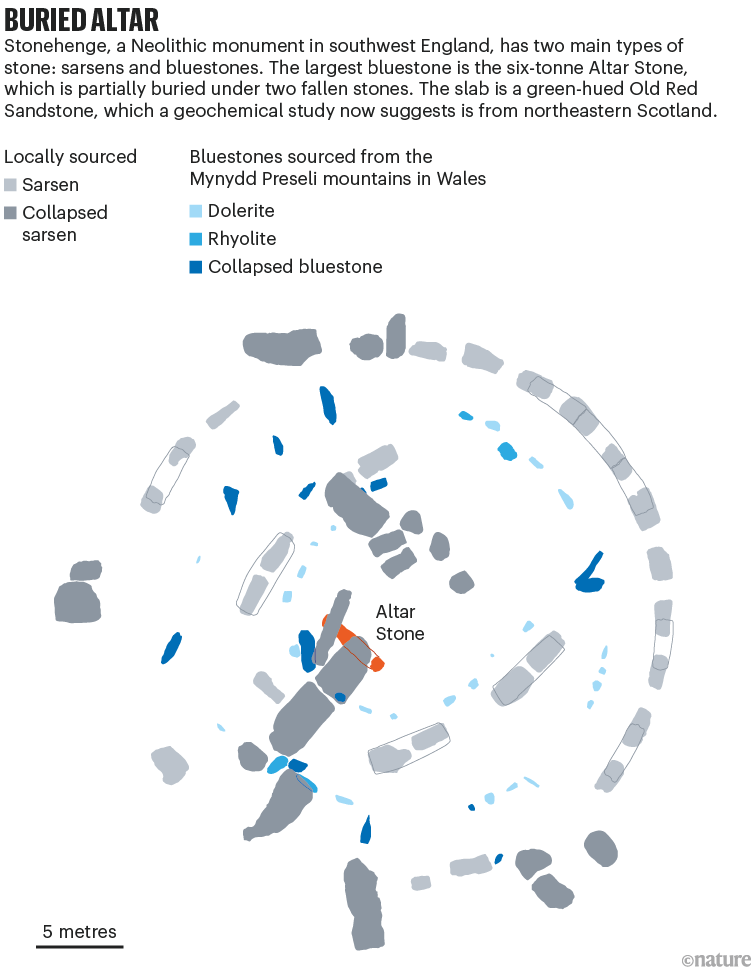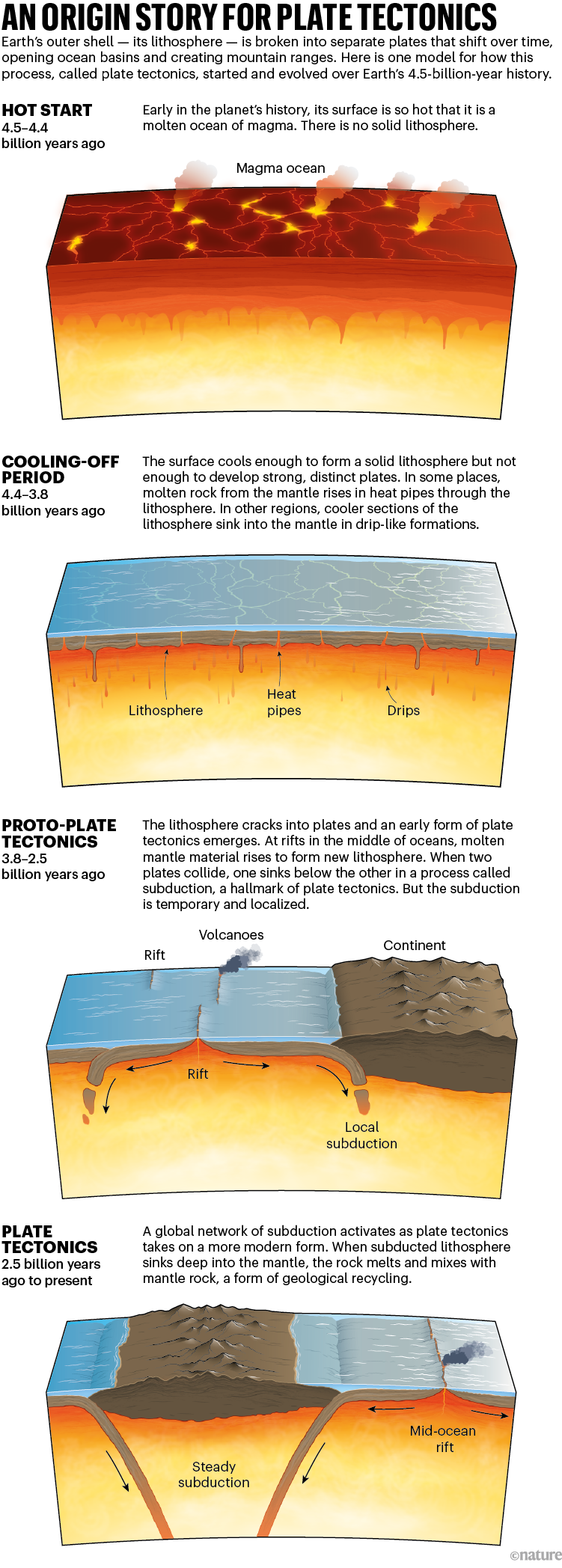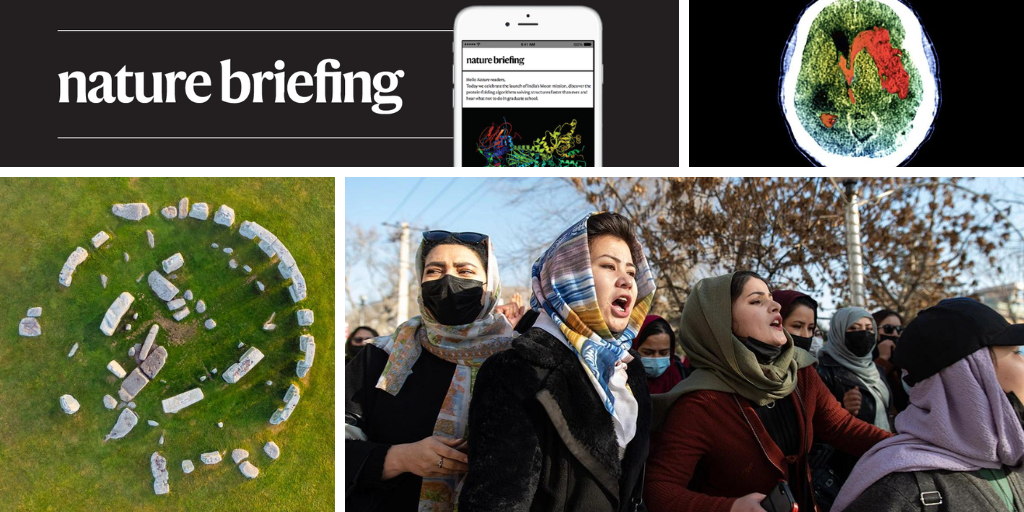
At the centre of the circle is the Altar Stone, which lies recumbent under two other slabs.Credit: Gavin Hellier/robertharding/Getty
Chemical analysis of tiny crystals in Stonehenge’s central Altar Stone suggest that it came from Scotland — and not from Wales as previously thought. The fingerprint of zircon, rutile and apatite crystals in the stone allowed it to be traced to the Orcadian Basin, which includes parts of northeastern Scotland and the Orkney Islands. Whether the six-tonne monolith was transported by land or by sea is hotly debated.

Source: Ref. 1.
A study of around 240 people with brain injuries who are physically unresponsive found that one quarter were actually conscious. People were given a brain scan and asked to imagine themselves playing tennis, or opening and closing their hand — 25% showed brain activity that indicated they could consistently respond to commands mentally. The responsive group tended to be younger, to have injuries that were from physical trauma and to have been living with their injuries for longer than the others. The actual proportion of people experiencing this state of ‘cognitive motor dissociation’ is likely to be even higher than measured by the test, says neurologist and study leader Nicholas Schiff. “I’ve been in the MRI, and I’ve done this experiment, and it’s hard.”
Reference: The New England Journal of Medicine paper
Three years ago, just days after their takeover of Afghanistan, a Taliban spokesman said: “We are going to allow women to work and study…. Women will be very active in society, but within the framework of Islam.” Yet since December 2022, girls over the age of 12 and women in Afghanistan have been banned from schools and universities, and they are unlikely to return anytime soon. “Three years are a lot in education — it’s almost a bachelor’s degree,” says one Afghan computer scientist, who now lives in Europe.”
An aggressive blood cancer that mainly affects children has 15 distinct subtypes, each linked to a particular outcome and responsiveness to drugs, according to a genomic analysis1. The work holds promise for improving treatment for T-cell acute lymphoblastic leukaemia — for example, sparing some children the harshest chemotherapy regimens and giving others the latest immune therapies.
Features & opinion
The International Court of Justice in the Hague will soon be asked to clarify the legal responsibility of nations for the impacts of climate change. Although non-binding, the court’s opinion will matter for thousands of climate lawsuits that aim to hold countries and companies to their climate promises. The court’s decision “could be one of the most consequential developments in climate policy since the Paris agreement”, argues a Nature editorial.
Biomedical-informatics researcher Milton Pividori’s laboratory spent 18 months studying how best to incorporate ChatGPT into scientific work. This is what they learnt:
• Engineer your prompt — there are ‘cheat sheets’ to help with this.
• Target tasks that are more mechanical — and usually, boring — and keep creative work for humans.
• Using a chatbot to write is less risky than asking it to read: it’s easier to catch ‘hallucinations’ in text you’re editing than to know when a summary contains inaccuracies.
A key point, especially for trainees. “If you don’t know how to do something, I strongly discourage you from using a chatbot to do it for you,” writes Pividori.
Infographic of the week

“Earth is the only planet we know that has plate tectonics,” says geologist Nadja Drabon. The constant shuffling of rocky plates creates habitats for life and affects the climate. But when in Earth’s early history did the shift from molten magma to cracked outer crust occur? The latest consensus is that the process played out across multiple stages over a long period of time. “It’s not a switch where we go from not-plate-tectonics to plate tectonics,” says petrologist Michael Brown. (Nature | 9 min read)


